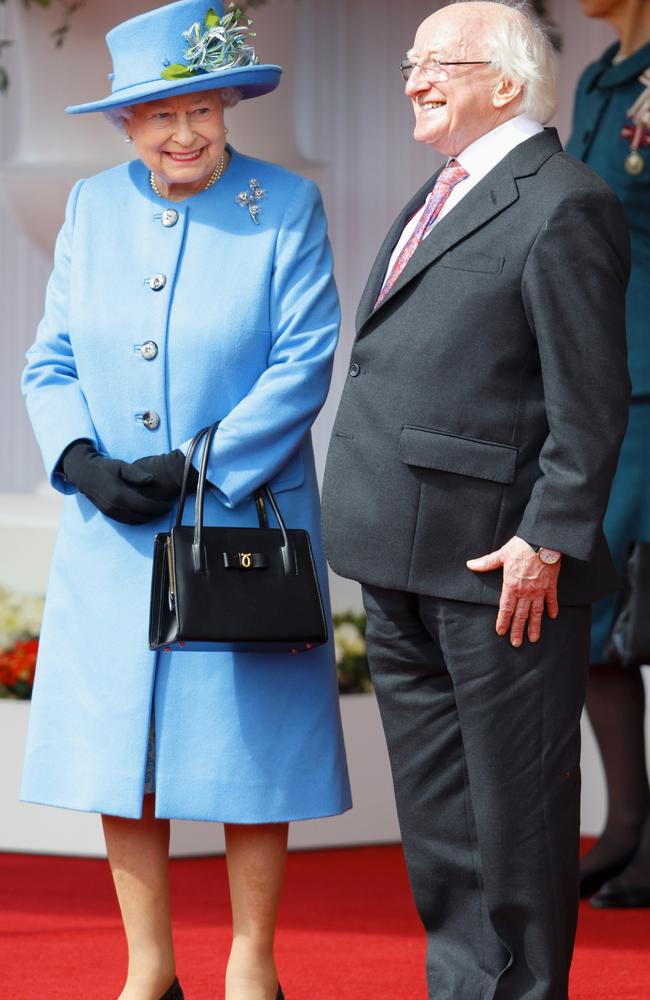Queen Elizabeth’s incredible reign will be a hard act to follow
Queen Elizabeth used some talents few ever would have guessed she had during her decades-long reign that historians believe will never be repeated.
Royals
Don't miss out on the headlines from Royals. Followed categories will be added to My News.
The Queen was a diplomatic forerunner with a great love for the Commonwealth, and her reign was one of restraint and quiet confidence, according to royal historian Hugo Vickers.
As the world mourns the passing of the Queen after 70 years and 214 days on the throne, Mr Vickers said the monarch had left a lasting legacy for her heirs and provided exemplary leadership over the decades.
“The Queen’s reign has been one of the most extraordinary phenomena of recent times and to be absolutely honest, if we lived for a thousand years I don’t think we would see anything ever like it again,’’ he said.

“During [her reign] she bestowed an extraordinary aura of calm and confidence over Great Britain and the Commonwealth,” he said.
“She never set a foot wrong, never said anything (wrong) in public.’’
Mr Vickers said this was outstanding considering the amount of scrutiny the Queen was under during her decades-long reign.
“If you wanted to apply an epithet to her, like Alfred the Great, there are two words that come to mind,’’ he said.
“First, Elizabeth the Steadfast, because she always had a very clear vision of what it was to be our Queen and to go forward calmly and confidently, never wavering.
“She had many times when her family was criticised – and occasionally she too was criticised, although mainly it was the people around her. But she never wavered and she went on and that paid off in the long run.”

Another apt name for her would be Elizabeth the Conciliator, Mr Vickers said.
“There are numerous examples over the course of her reign where she put behind her the bad things of history and established good diplomatic relations with other countries.’’
Mr Vickers said one of the most important diplomatic decisions made by the Queen was to visit Ireland (her first state visit was in 2011) and entertain the Irish president Michael D Higgins at Windsor in 2014.
The 1958 visit of West German president Theodor Heuss, and her three-week tour to Germany in 1965 were both important, as were her visits to Russia and China, Mr Vickers said.
She also went to Japan in 1971 and 1976, and later received Emperor Akihito in London.
“There may have been many reasons why on a personal level the Queen might not have wanted to have much to do with these countries, or some of the people involved,” he said.
“But she saw that by making friends with them and re-establishing diplomatic relations it made things better for all of us in the future.

“The politicians could come later and do all sorts of different things but she was very often the diplomatic forerunner, and I think that was terribly important.’’
Mr Vickers said the Queen’s long life, and her excellent memory had made her a “walking encyclopaedia’’.
“She was born just after the death of [Edward VII’s wife] Queen Alexandra; she goes right back into the depths of history, and then when she became Queen she was always a very serious, serious young lady.
“I could put it that she was a little bit like the head girl of a smart school.
“She had a very good memory so … if she showed people things she would expect them to take it in.’’
Mr Vickers said the Queen had a great love for the Commonwealth and “no monarch did more for Commonwealth relations’’.

“She always saw the Commonwealth as a family of nations that came together because they wanted to be involved with each other,” he said.
“That last visit she did when they had the Commonwealth Heads of Government Meeting in Perth (in 2011), lots of people were amazed by the fact that the Queen and Prince Philip were still undertaking duties just as if they were youngsters, whereas a lot of their parents were probably in nursing homes or sitting slumped in front of the television.
“That was a very, very good visit,” Mr Vickers said.




